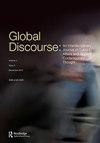巴基斯坦和伊朗关系以及地区和国内安全与战略利益性质的变化
IF 1.4
Q2 INTERNATIONAL RELATIONS
引用次数: 2
摘要
巴基斯坦和伊朗的关系一直在演变。双边安全关切和战略利益,以及两国政治身份的不断变化,塑造了这两个邻国之间的关系。在沙阿政权时期,巴基斯坦和伊朗是强大的盟友,因为他们有着和谐的政治前景,并且在冷战期间都是美国领导的政治集团的成员。随着伊斯兰革命的发生,伊朗的民族认同发生了根本性的变化,并产生了一种本质上是对抗性的政治愿景。该地区地缘政治利益和结盟的分歧使两国进一步分离。苏联军队从阿富汗撤出后,双方支持不同的团体,由于巴基斯坦支持塔利班政权,双边关系进一步疏远,塔利班政权迫害阿富汗什叶派,还参与杀害伊朗外交官。伊朗与印度的安全协议,以及巴基斯坦与沙特阿拉伯的牢固关系,进一步加剧了两国关系的复杂和不安。俾路支省解放军(Balochistan Liberation Army)的反巴基斯坦叛乱分子和“真主旅”(Jundullah)和“阿德军”(Jaish Al-Adl)的反伊朗叛乱分子对边境造成的日益严重的安全威胁,使双方安全机构之间的关系复杂化。此外,将巴基斯坦什叶派社区政治化的企图以及巴基斯坦国内的宗派暴力事件使两国相互警惕。这些事态发展严重阻碍了加强经济和能源领域联系的努力。然而,这些分歧并没有导致两国之间的对抗日益加剧,因为双方都充分意识到这种冲突近乎灾难性的后果。尽管如此,他们也未能建立一个解决双边问题的机制;因此,紧张的竞争是双边事务状况的缩影。然而,随着巴基斯坦机构和政府开始改变对该地区的战略展望,改善双边关系的新机遇正在出现。本文章由计算机程序翻译,如有差异,请以英文原文为准。
The Pakistan–Iran relationship and the changing nature of regional and domestic security and strategic interests
The Pakistan–Iran relationship has been evolving over time. Ties between the two neighbours have been shaped by bilateral security concerns and strategic interests, as well as flux in the political identities of the two states. Pakistan and Iran were strong allies during the time of the Shah regime, as they had a harmonious political outlook and shared membership in the American-led political block during the Cold War. With the Islamic revolution, Iranian national identity underwent a radical change and gave birth to a political vision that was confrontational in essence. Diverging geopolitical interests and alignments in the region moved the two nations further apart. After the withdrawal of Soviet troops from Afghanistan, both sides backed different groups, and the bilateral relationship became further estranged owing to Pakistan’s support for the Taliban regime, which persecuted Afghan Shi’ites and was also involved in the killing of Iranian diplomats. The Iranian security accord with India, as well as Pakistan’s strong ties with Saudi Arabia, further contributed to making the relationship complex and uneasy. Burgeoning security threats across the border from anti-Pakistan insurgents of the Balochistan Liberation Army and anti-Iran insurgents of Jundullah and Jaish Al-Adl have complicated the relationship between the security establishments on both sides. Furthermore, attempts to politicise Pakistan’s Shi’ite community and instances of sectarian violence inside Pakistan have made both states wary of each other. These developments have been critical in impeding efforts to enhance ties in the economic and energy fields. Yet, these differences have not led both states to increasingly confront each other, as both sides fully realise the near-disastrous consequences of such a conflict. Nonetheless, they have also failed to develop a mechanism to address bilateral issues; thus, a tense competition epitomises the state of bilateral affairs. However, as the Pakistani institutions and government have started to change their strategic outlook towards the region, new opportunities are emerging for the improvement of the bilateral relationship.
求助全文
通过发布文献求助,成功后即可免费获取论文全文。
去求助
来源期刊

Global Discourse
Social Sciences-Political Science and International Relations
CiteScore
4.10
自引率
6.70%
发文量
64
期刊介绍:
Global Discourse is an interdisciplinary, problem-oriented journal of applied contemporary thought operating at the intersection of politics, international relations, sociology and social policy. The journal’s scope is broad, encouraging interrogation of current affairs with regard to core questions of distributive justice, wellbeing, cultural diversity, autonomy, sovereignty, security and recognition. All issues are themed and aimed at addressing pressing issues as they emerge.
 求助内容:
求助内容: 应助结果提醒方式:
应助结果提醒方式:


